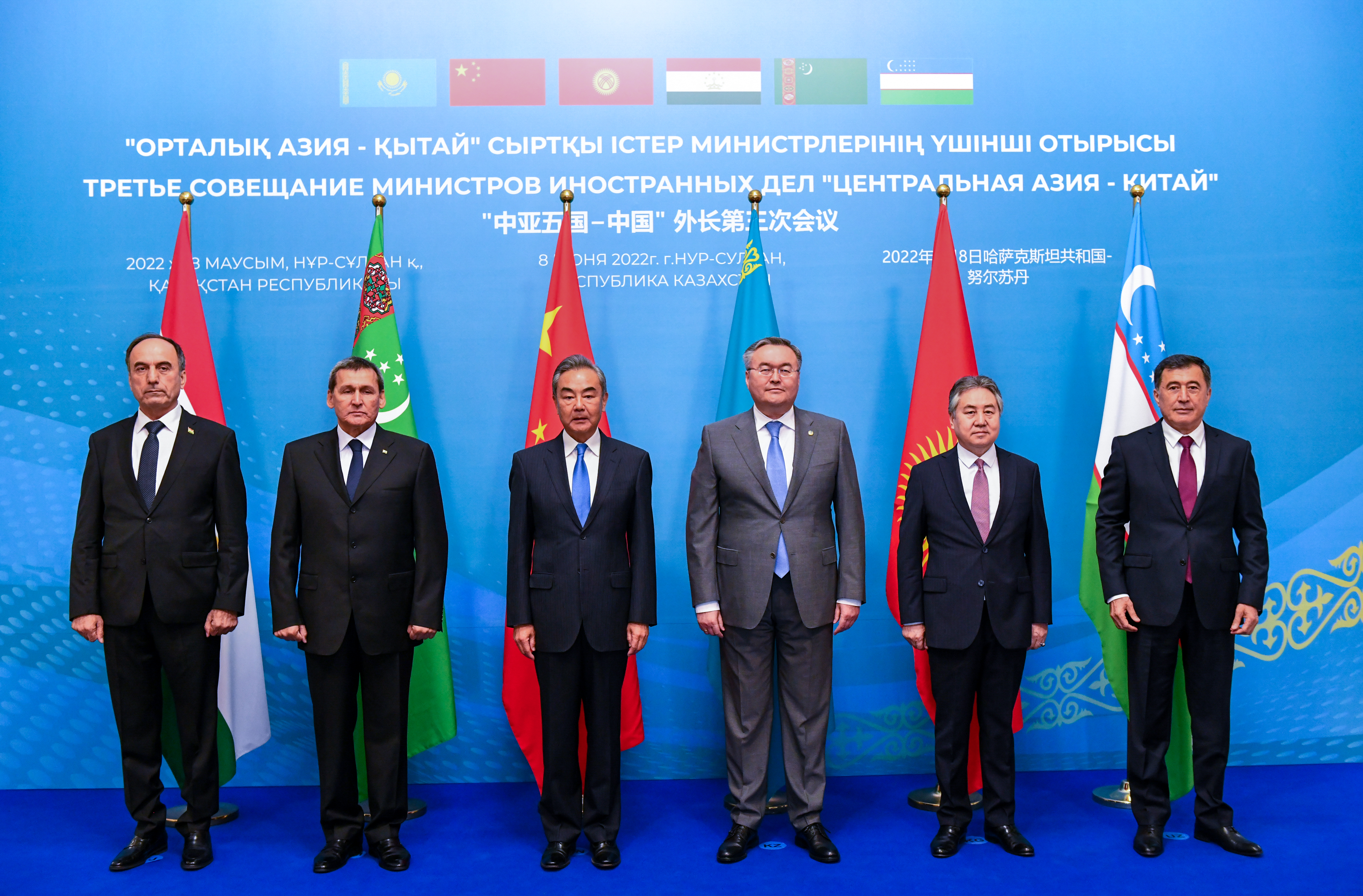Kazakhstan hosted the third meeting of foreign ministers of Central Asian countries and China

Nur-Sultan, June 8, 2022 - Kazakhstan chaired the third Central Asia + China foreign ministers’ meeting.
It was attended by Mukhtar Tileuberdi, Deputy Prime Minister and Minister of Foreign Affairs of Kazakhstan, Wang Yi, State Councilor and Minister of Foreign Affairs of China, Zheenbek Kulubaev, Minister of Foreign Affairs of the Kyrgyz Republic, Azim Ibrohim, Minister of Transport of Tajikistan, Rashid Meredov, Deputy Chairman of the Cabinet of Ministers and Minister of Foreign Affairs of Turkmenistan, and Vladimir Norov, Acting Minister of Foreign Affairs of Uzbekistan.
During the meeting held in an amicable and trusting atmosphere, the ministers considered ways to implement the initiatives announced by the heads of Central Asian states and China on January 25, 2022, during the first summit, which was held on the occasion of the 30th anniversary of establishing diplomatic relations in the year of Kazakhstan's chairmanship.
The heads of delegations noted that the further expansion of multifaceted cooperation between the countries of Central Asia and China is an important factor in sustainable socio-economic development and maintaining peace, stability and security in the region. The parties highlighted their interest in consolidating interaction within this format, emphasizing its significant potential and proposing turning the Central Asian region into an area of peace, friendship, mutual assistance, sustainable development and harmony.
A pivotal step forward was the adoption of the Roadmap covering the following strategic areas: security, transport and logistics, energy and industry, combating climate change, green economy, the IT industry, healthcare, education, culture, tourism and other spheres.
In addition, the participants approved relevant initiatives to enhance the interconnectedness of the Central Asian region with China and increase cooperation in the field of personal data security.
The Joint Statement of the Foreign Ministers adopted following the meeting fully reflected the results of consultations and outlined main medium-term goals. This indicates that the current format proposed by China in 2020 has proven itself to be an effective mechanism for the development of interregional cooperation capable of finding mutually acceptable approaches to addressing pressing regional and international issues.
Kazakhstan has completed its chairmanship in this format, which has been transferred to China ahead of the fourth forum.